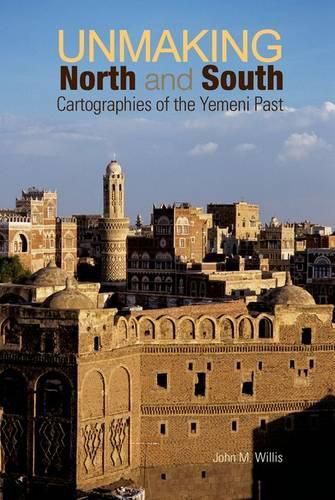Readings Newsletter
Become a Readings Member to make your shopping experience even easier.
Sign in or sign up for free!
You’re not far away from qualifying for FREE standard shipping within Australia
You’ve qualified for FREE standard shipping within Australia
The cart is loading…






Unmaking North and South revisits the Yemeni past by situating the historical construction of Yemen’s north and south as bounded political, social, and moral spaces in the broader context of imperial rule, state formation, and religious reform in the Indian Ocean arena. The study is centered on the formation of the British Aden Protectorate and the Zaydi-Shiite Imamate of the Hamid al-Din family in the period between 1857and 1934.Focusing on the British creation of a series of ‘native states’ on the model of princely India in the Yemeni south and Imam Yahya Hamid al-Din’s formation of a hybrid state based on Ottoman state forms and Sunni reformist ideology in the north, the book demonstrates the extent to which Yemen’s modern history was rooted both in the structures of the British Raj and the intellectual debates of the greater Sunni Muslim world. The book uses a variety of case studies dealing with imperial state ritual, arms smuggling, cartography and colonial ethnography, debates over the nature of the Islamic polity, and an undeclared war between the British and the Yemeni Imamate in order to re-center the history of Yemen in a trans-regional context. Moving deftly between narratives of the colonial, local, modern, and Islamic, Willis questions the historical inevitability of the post-colonial Yemeni nation and suggests other modes of narrating Yemen’s contested past.
$9.00 standard shipping within Australia
FREE standard shipping within Australia for orders over $100.00
Express & International shipping calculated at checkout
Unmaking North and South revisits the Yemeni past by situating the historical construction of Yemen’s north and south as bounded political, social, and moral spaces in the broader context of imperial rule, state formation, and religious reform in the Indian Ocean arena. The study is centered on the formation of the British Aden Protectorate and the Zaydi-Shiite Imamate of the Hamid al-Din family in the period between 1857and 1934.Focusing on the British creation of a series of ‘native states’ on the model of princely India in the Yemeni south and Imam Yahya Hamid al-Din’s formation of a hybrid state based on Ottoman state forms and Sunni reformist ideology in the north, the book demonstrates the extent to which Yemen’s modern history was rooted both in the structures of the British Raj and the intellectual debates of the greater Sunni Muslim world. The book uses a variety of case studies dealing with imperial state ritual, arms smuggling, cartography and colonial ethnography, debates over the nature of the Islamic polity, and an undeclared war between the British and the Yemeni Imamate in order to re-center the history of Yemen in a trans-regional context. Moving deftly between narratives of the colonial, local, modern, and Islamic, Willis questions the historical inevitability of the post-colonial Yemeni nation and suggests other modes of narrating Yemen’s contested past.